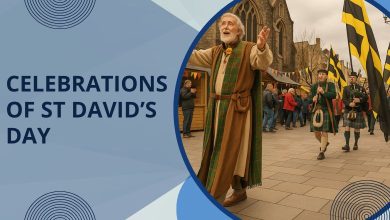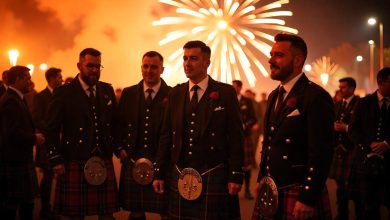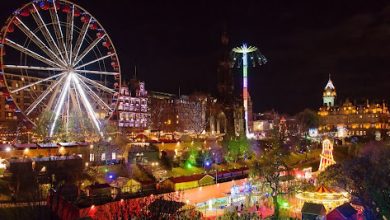Experience the Magic of Various Scottish Festivals
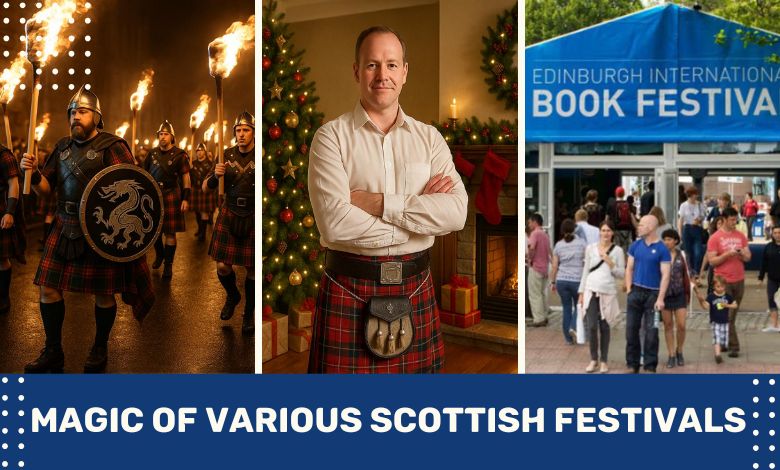
A significant number of festivals take place in Scotland. According to Wikipedia, Scotland hosts over 200 festivals every year. All of these festivities are celebrated at different levels and places. Similarly, they have divisions like cultural festivals, contemporary festivals, and religious festivals. Some celebrations have boundaries to particular regions making them less popular in other regions. Therefore, we have divided this article into these 4 sections. Here you will learn about different celebrations in each category. So, without a delay, let’s start our discussion with cultural festivals.
The Cultural Festivals
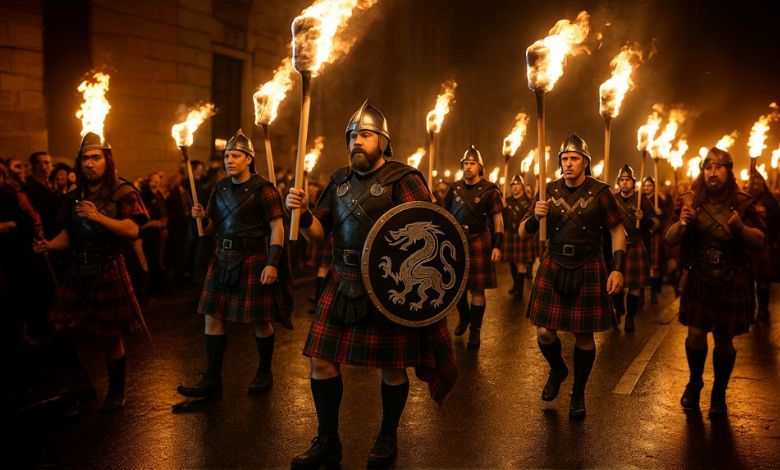
Cultural festivals showcase a region’s traditions, cultural practices, and heritage. Such types of celebrations are popular worldwide. Scotland also has a strong cultural background while some famous customs there are:
Braemar Gathering
It is a traditional festival initiated in 1832 and today it is a not-to-be-missed event. It’s a single-day event taking place on the first Saturday of September in Braemar, in the Cairngorms National Park. This festival features gaming competitions, Celtic dance, and bagpipe bands that allow people to experience real Scottish culture.
Beltane Fire Festival
Scots deeply follow Celtic traditions and burning fire is a famous custom. People celebrate the Beltane Fire Festival annually on 1st May to farewell winter. As a part of their rituals, Celts used to burn fire to protect their cattle and fields. So, they still burn a fire every year, sing traditional songs and dance around it.
Up Helly Aa
The Norse ruled some specific parts of Scotland and left their marks which are still alive in the form of festivals. Thus, “Up Helly Aa” is a common example. It’s a one-day commemoration marking the end of the yule season. On the last Tuesday of January, Shetland Islands come alive with celebration fires.
Hogmanay
Hogmanay is the celebration of the New Year in Scotland, starting on New Year’s Eve. It is a bank holiday in Scotland, and even continues to 2nd January for additional celebrations. It is the most significant festival. Its different celebrations include torch processions, singing, Ceilidh, etc Therefore, seeing people in all types of men’s kilts to honor their past and forefathers is a typical practice.
Modern Festivals
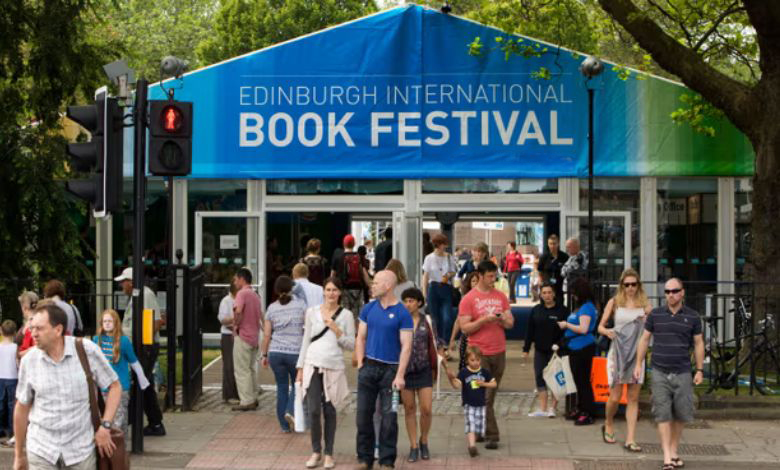
We discussed some popular traditional Scottish festivals; now, it’s time to have an overview of modern festivals there. These events started in the modern era, probably after the start of the 20th century.
Edinburgh Festival Fringe
The first festival is the Edinburgh Festival Fringe and it is the largest arts gala worldwide. The event takes place in August where people participate in art, theatre, music, comedy, and many other performances. Initiated in 1947, it attracted 2.6 million people in 2024, while the event continued for 24 days.
Element Festival
Do you know about the most recent festival in Scotland? It is the Element Festival, starting in 2022. The festival involves an annual fair selling gold, silver, and jewelry. The number of participants is increasing with time. There is no exact data available about participants but sources claim 7,000-10,000 people take part.
Edinburgh International Book Festival
Books enthusiasts are not difficult to spot in any part of the world and Scotland is no exception. Scots showcase their craze for books by assigning them a festival named “Edinburgh International Book Festival.” The event started in 1983 and remained biennial till 1997. Today, it is an annual celebration attracting writers, thinkers, and the public to share stories and promote connections with humanity.
Religious Festivals
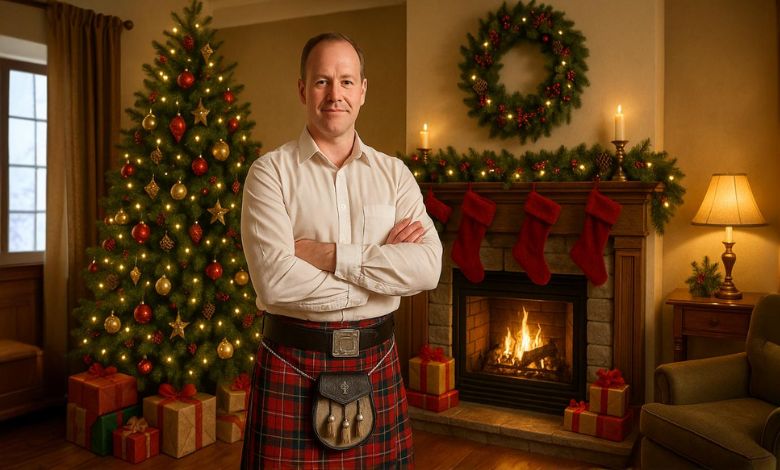
Scotland celebrates religious festivals like other countries. The majority there follow Christianity. That’s why festivals like Christmas, Easter, and St. Andrew’s Day are very common there.
Christmas
Scotland’s most important Christian holiday is Christmas, which is observed on December 25 in honour of Jesus Christ. The celebration is observed by Christians, even by people who do not share the same beliefs. In Scotland, it’s a time for family get-togethers, when people eat traditional foods like Christmas pudding, haggis and turkey.
Easter
Christians celebrate Easter as a time to remember Jesus Christ’s resurrection. They celebrate the victory of life over death in this period of rebirth and joy. Many non-Christians also celebrate Easter but as a cultural festival. Event includes customs like egg hunts and family get-togethers. Event does not have a set date since commemoration is dependent on the lunar calendar and the spring equinox, which occurs on March 21s.
St. Andrew’s Day
Saint Andrew was the patron saint and apostle of Jesus Christ. 30th November is the celebration day in Scotland. People in Scotland gather on this day for good reasons. This day is a feast day, while other celebrations comprise dancing, traditional music, storytelling, etc. The first celebration occurred in 1320 and continues to this day. People usually wear kilts on this day and Saint Andrew Tartan Kilt is a popular choice.
Lesser-Known Festivals
It’s time to talk about lesser-known festivals. These festivities are specific to particular regions and celebrated by locals only. Some prominent names among them are:
Pittenweem Arts Festival | Skye Live Festival |
Stonehaven Fireballs Ceremony | Traquair Fair |
The Border Ridings | Tiree Music Festival |
Spirit of Speyside Whisky Festival | Orkney Folk Festival |
Mull Music Festival | Shetland Wool Week |
Final Opinion
No matter what culture a person follows, Scotland has something for everyone. Scottish festivals attract millions annually to showcase themselves and spread love among humanity. Diversity in festivals lets people from every domain participate, whether a person is religious, a thinker, a comedian, a book enthusiast, or whatever he is. If planning to participate in any festival there, ensure dressing yourself in their traditional attire.

